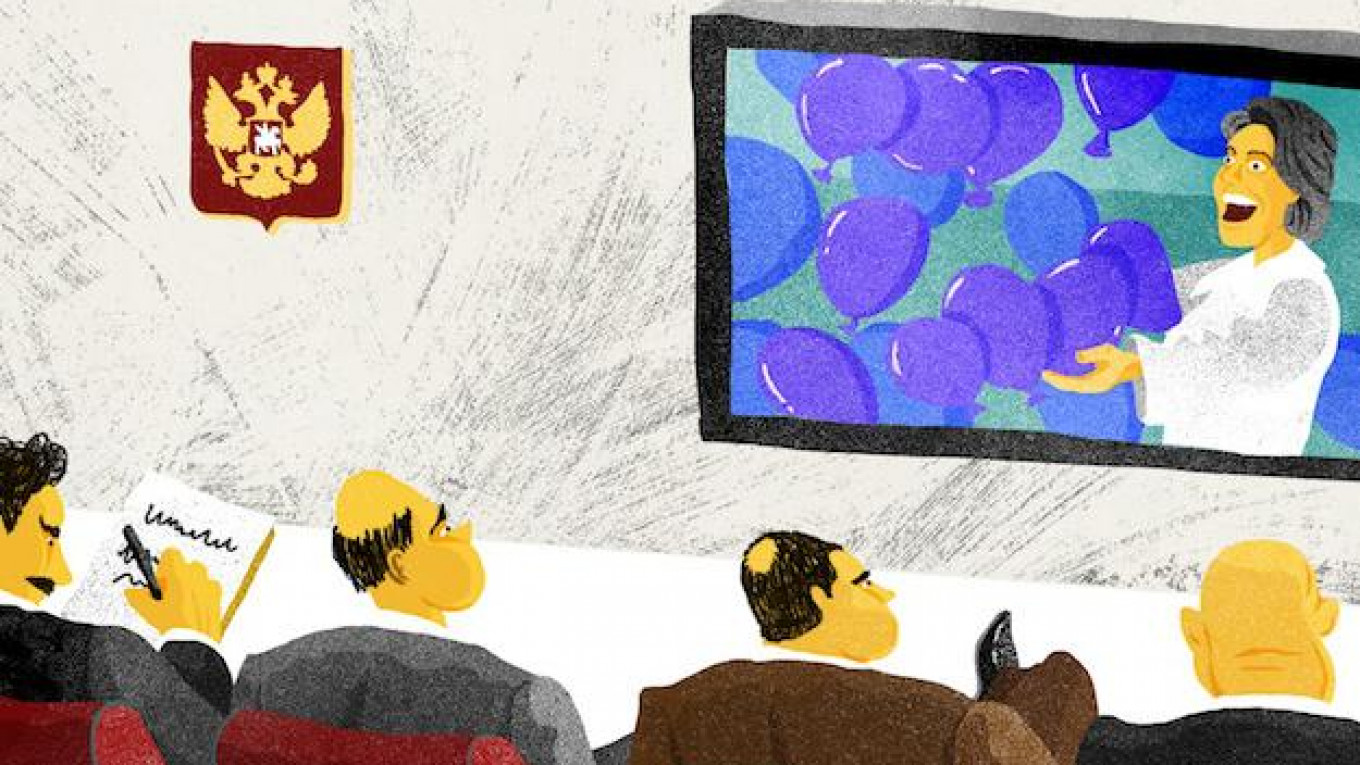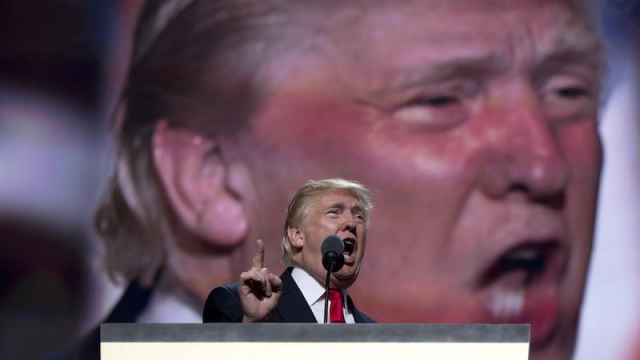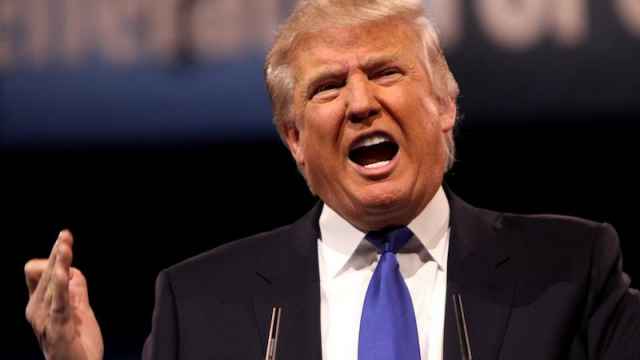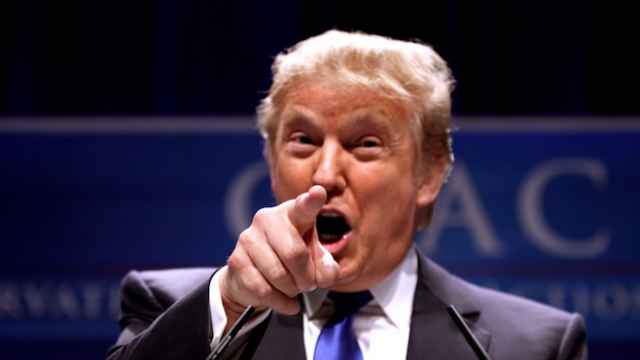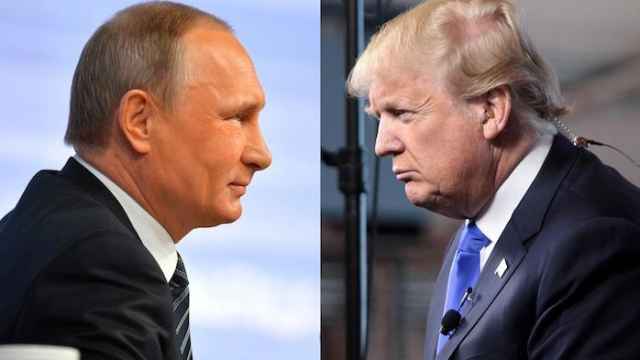In 1967, at the height of the Cold War, the Soviet Union established a new think tank to study the enemy. Its experts reported directly to the Foreign Ministry, the Defense Ministry and, on occasion, directly to the Kremlin. For 24 years, the Institute for American and Canadian Studies had a monopoly on such expert advice.
Today, while the Institute continues to play an important role in Russia’s foreign policy community, the field of American political expertise has become a broad school. With standalone university courses, independent experts and university professors, there are now multiple sources of expertise on the enemy. Of course, few of the most independent are reflected on the country's television screens.
With the U.S. presidential election in its final stretch, The Moscow Times decided to poll some of Russia's top U.S. experts with a view to get the Moscow perspective on a presidential election that promises to be the most consequential in decades. As many of them noted, it is also an election in which Russia appears to have a clear vested interest.
Who will win the election?
Pavel Sharikov, head of the center of applied research at the Academy of Science's Institute for American and Canadian Studies — Russia's oldest U.S. research outfit.
As has been the case since I started observing U.S. elections in 2000, it's really hard to say anything before November. The victory of an experienced politician like Clinton still seems more probable, but Trump's campaign style is very aggressive. He might have a few aces up his sleeve. Already, Clinton almost lost several times to Bernie Sanders — a politician who is basically considered to be a Communist by American standards — so her chances of winning are not entirely persuasive.
Dmitry Suslov, professor of American Politics at Moscow's Higher School of Economics
Hillary Clinton will win, I predict. Election results in the United States are usually determined by swing states, and independent voters who are more or less moderate and centrist. For these kinds of people, Donald Trump is just too radical. He succeeded in winning the Republican nomination because of his extreme and populist viewpoints. But, given the choice between him and Hillary Clinton, the conventional moderate American voter would vote for continuity and stability, rather than the kind of revolution that Trump brings with him.
Mikhail Troitskiy, professor of international relations at MGIMO, expert on American foreign policy.
I would certainly bet on Clinton's victory. But I wouldn't put all my money on Hillary becoming the next president. We will see what unfolds between now and November; see which issues pop up. For the moment, however, Clinton does have a better chance of winning than Trump.
Andrei Sushentsov, program director at the Valdai Discussion Club and head of the Foreign Policy Advisory Group:
I think Trump has a better sense of the zeitgeist in the American majority right now. That said, I think the Clinton campaign has better organization and greater capacity to get out the vote in decisive states. So, I think in the end Clinton will win.
This has been a very unorthodox election. How do you explain it to Russians?
Dmitry Suslov:
The American political system is in a process of unstoppable change, and both Donald Trump and Bernie Sanders are proof of this. Together, they showed that the American public is generally not okay with globalization. Today, people are basically saying 'We don't want that kind of tomorrow, so give us back our comfortable yesterday.' Trump is exploiting those feelings.
The election of 2024 will most likely be decisive in terms of American domestic politics. Clinton is the white knight of the Washington elite, and the Trump and Sanders phenomena show the American people are becoming increasingly opposed to it. A Clinton victory will not stop the overall changes happening in the American electorate.
Andrei Sushentsov:
The American elite has lost touch with the electorate. People have fewer economic opportunities, and this provokes all kind of conflicts in American society. Domestic and international security has once again become an important issue driving the election.
Mikhail Troitskiy:
The U.S. is engaged in an overdue experiment in populist politics. What Trump is doing is a very shrewdly timed attempt to harness populism — in this case, anger at the impact of globalization on American society and economy — and to marry it with the democratic ideal of one person, one vote.
He has succeeded in doing this because he comes from outside the political class, and can therefore afford to shrug off political correctness. He can afford to appeal to racial divides, ethnic tensions, and pent-up angers existing in American society.
But given demographic changes taking place within the American electorate, I think this is the last time someone can play with these kinds of populist political tactics. Trump is betting on the white majority — of whom I guess less than 50 percent have college degrees — and it might be someone's last chance to run on a divisive, sexist, ethno-centric platform in America. The demographics are shifting away from the white majority.
Pavel Sharikov:
For many years, American politics was very logical and explainable. Even with the really bad decisions, there was a certain logic at play. Trump, on the other hand, addresses those Americans who deeply want to hear 'Make America Great Again.' It's basically an economic platform aimed at job creation.
And yet I still cannot understand his motivations. He's a businessman. Unlike in Russia, you don't go into politics to make money. In Russia, certain politicians manage to use their powers to benefit their business, and thus make big money. Maybe I'm an idealist, but its a different system in America.
What would a Hillary Clinton victory mean for Russia?
Dmitry Suslov:
A Clinton victory
would be very bad for U.S.-Russia relations. Under her
administration, American foreign policy will become even more
ideological and even more anti-Russian. This is not the end of the
world, because this kind of foreign policy will become less and less
supported by the American public. A fundamental change, a
revolutionary change in American foreign policy is unavoidable.
Either in 2020 or 2024, the U.S. will put an end to the foreign
policy consensus first established by Harry Truman in the 1940s
[about the United States maintaining an active leadership role in
world affairs]. This will be good for Russia.
Mikhail Troitskiy:
I think we have a better shot working with her. Trump is unpredictable, and it is better to stick with the 'known evil,' so to speak. Russia would have a chance of engaging in some substantive negotiations with a Clinton administration. Basically, with any new administration — or at least a predictable one — there is a chance to try some blank-slate negotiations.
Pavel Sharikov:
There's a weird relationship between Russian politicians and American parties. The general thinking is that Russian politicians work well with American Democrats. But if we look at the history of the Cold War, it started under a Democratic president, Harry Truman. The first arms control treaty signed with a Democrat was in 2009, with Obama. All previous arms control treaties were signed with Republican presidents. The Republican party — I'm talking about the GOP of the 1970s, with Kissinger and realpolitik — they were always very pragmatic. They had few ideological components.
Under President Hillary Clinton, bilateral relations are not likely to improve. But there are very few opportunities for relations to get worse. There are rumors about potential members of her cabinet and administration that would be promising for Russia — names like Bill Burns, the head of the Carnegie Endowment and a former U.S. Ambassador to Russia. He's very smart, and well respected in Moscow. But then there are others, for example [Obama's former Ambassador to Russia] Michael McFaul, who is still blamed in Russia for the general deterioration of bilateral relations.
And whatever happens, Hillary Clinton and Putin will never understand each other. Issues such as LGBT rights and other social policies, for example, seem unacceptable to the Russian government.
What would a Trump presidency mean for Russia?
Dmitry Suslov:
The majority of problems in U.S.-Russia relations are driven not by bilateral relations, but the fundamental difference in the way international order is understood.
If Trump prevails,
the overwhelming majority of these problems will disappear by
themselves. Trump will most likely be indifferent toward Russian
policies in the neighborhood, and will likely not engage in democracy
promotion and regime change.
On the other hand, Trump is the embodiment of unpredictability. George W. Bush also turned out to be completely different than we expected. For example, he campaigned against Clinton's liberal foreign policy, but after 9/11 he turned out to be much more ideological and interventionist than Clinton. A similar thing could happen with Trump.
Mikhail Troitskiy:
From what we are hearing, Trump is Russia's favored candidate. He talks about reneging on NATO commitments, recognizing Crimea as part of Russia, he seems pro-Russia and wants to do business with Russia, and so on. But I would advise Putin to be cautious with Trump. He is extremely unpredictable, and we don't know who, for example, his national security advisor might be. What if he goes for someone really hawkish to prove to the bureaucracy he's a mainstream guy? In that case, we might get a policy even more adversarial toward Russia than Clinton’s.
Pavel Sharikov:
Trump is controversial when it comes to Russia. Here he is perceived as a good dealer who will try to work with Putin, so this makes him a better option than anyone else. But he is hard to understand. The litmus test for Russian politicians is what each candidate says about Russia's actions in Ukraine — whether they were aggressive or defensive, basically.
Trump has said both things. But recently, he's been very positive about Russia and Putin. Naturally enough, Russian politicians and pundits are gravitating toward him.
A Message from The Moscow Times:
Dear readers,
We are facing unprecedented challenges. Russia's Prosecutor General's Office has designated The Moscow Times as an "undesirable" organization, criminalizing our work and putting our staff at risk of prosecution. This follows our earlier unjust labeling as a "foreign agent."
These actions are direct attempts to silence independent journalism in Russia. The authorities claim our work "discredits the decisions of the Russian leadership." We see things differently: we strive to provide accurate, unbiased reporting on Russia.
We, the journalists of The Moscow Times, refuse to be silenced. But to continue our work, we need your help.
Your support, no matter how small, makes a world of difference. If you can, please support us monthly starting from just $2. It's quick to set up, and every contribution makes a significant impact.
By supporting The Moscow Times, you're defending open, independent journalism in the face of repression. Thank you for standing with us.
Remind me later.


